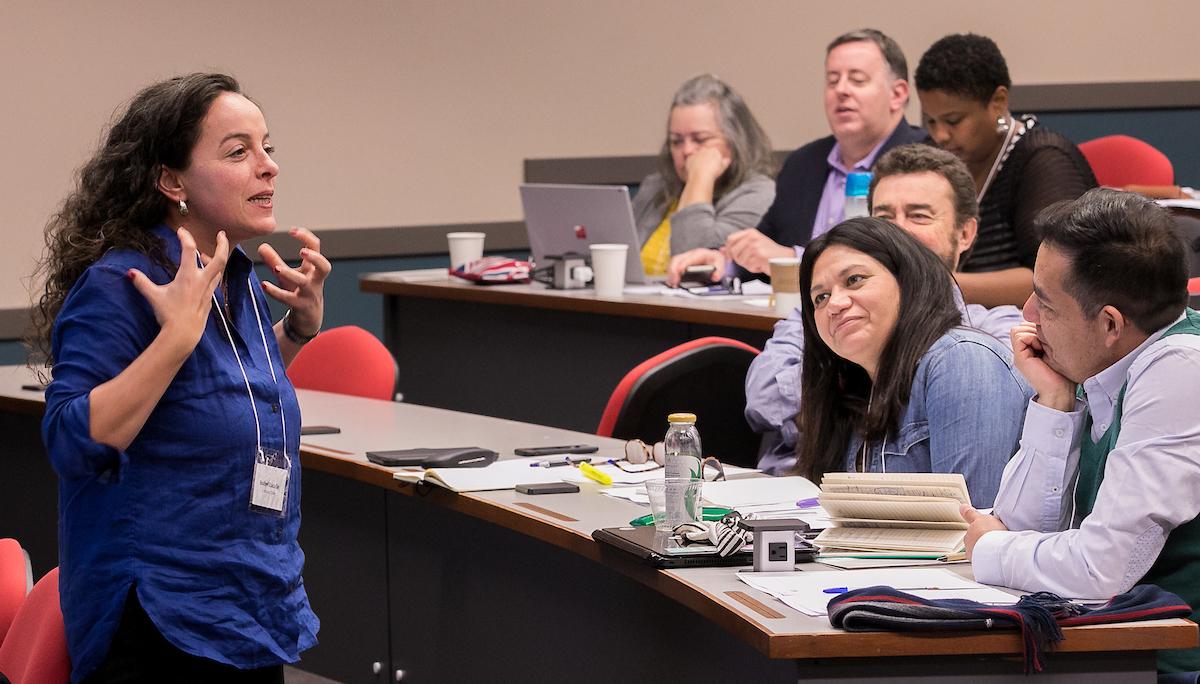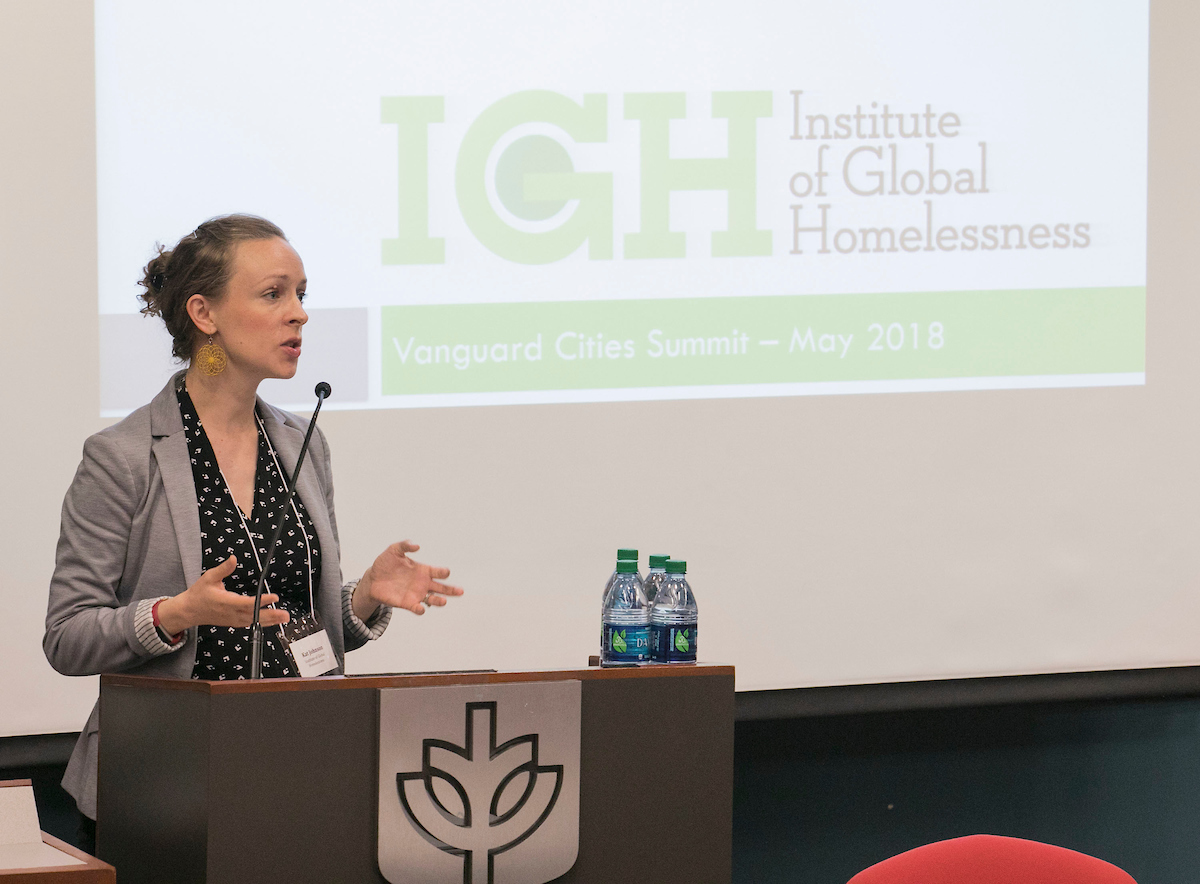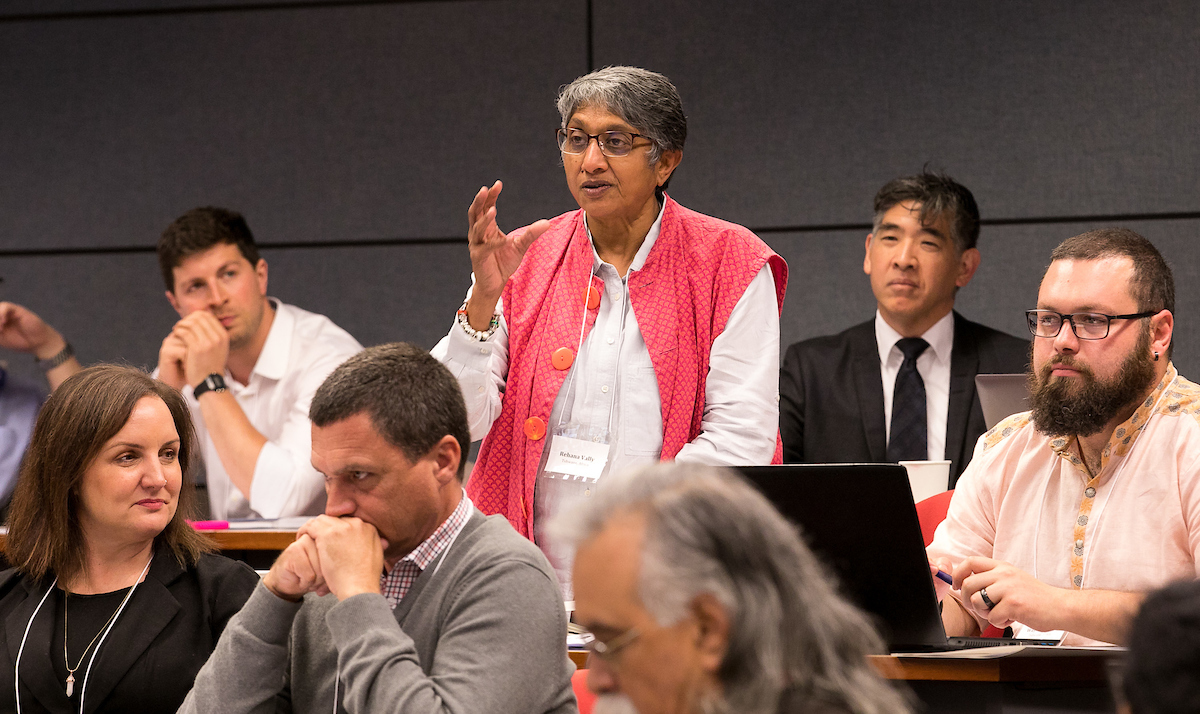 Isabel Lacalle of Santiago, Chile, addresses fellow advocates and policymakers during a recent conference with the Institute of Global Homelessness. Thirteen vanguard cities gathered to set goals to address street homelessness by 2020. (DePaul University/Jamie Moncrief)
Isabel Lacalle of Santiago, Chile, addresses fellow advocates and policymakers during a recent conference with the Institute of Global Homelessness. Thirteen vanguard cities gathered to set goals to address street homelessness by 2020. (DePaul University/Jamie Moncrief)
What can homelessness advocates in Chile teach housing experts in Australia? How can ideas sparked in the streets in South Africa reach policymakers in Canada? While homelessness looks different around the globe, solutions are now being shared and adapted between cities as part of A Place to Call Home, a campaign of the Institute of Global Homelessness at DePaul.
"We are generating the momentum of a global campaign, and bringing these cities together is the drumbeat beneath it all," says Kat Johnson, director of the institute.
 Kat Johnson, director of the Institute of Global Homelessness, addresses the May 2018 conference. (DePaul University/Jamie Moncrief)
Kat Johnson, director of the Institute of Global Homelessness, addresses the May 2018 conference. (DePaul University/Jamie Moncrief)
Last week, about 40 international policymakers and advocates gathered at DePaul for the first official meeting of the vanguard cities, a group at the forefront of the institute's campaign to end street homelessness. These cities will work to set an achievable goal to address street homelessness in their city by 2020 as part of the goal to help 150 cities work toward ending homelessness by 2030.
"Most importantly, they're going to prove that it's possible to make significant progress in ending street homelessness," Johnson says.
Representatives from the 13 vanguard cities gathered in Chicago to share their goals and identify potential barriers to success. The institute's role will be to provide technical support as the cities get to work testing housing strategies and developing methodologies around measuring street homelessness.
Connecting the cities with each other is a vital part of the institute's gatherings as well. Ian Goodwin-Smith, a research leader and advocate from Adelaide, Australia, says it's good to be among "fellow travelers."
"For me the most important part of the Vanguard Cities coalition, as a community of practice, is that it provides a sense of collegiality that gives you the inspiration you need to keep moving things forward," Goodwin-Smith says.
For Isabel Lacalle of Santiago, Chile, being among other advocates helps her feel less alone in her work. "I enjoy very much being part of a global group," she says. "You can see that you're not the only one who has the same problems. We have a lot of issues we manage in different ways. But it's good to talk to others who have already tried the approaches we're thinking about trying, so we can know about their experience."
The collaborative nature of the campaign is innovative because it's rare for work to end homelessness to happen in such a diverse context, Johnson explains. For the past year, cities have been announcing their participation locally. Some of the 13 cities include Adelaide, Australia; Greater Manchester, England; Tshwane, South Africa; and Edmonton, Canada. There will be at least one city from each of the six major continents, Johnson says. "We want this group to show that it's possible globally, in a number of different contexts, to achieve concrete results for people who are homeless."
Earlier this year, the institute launched an online hub that serves as a central repository for research and resources on ending homelessness. "The hub brings together in one place online what we know about the causes and solutions to homelessness around the world," Johnson says.
As the vanguard cities test methods and reach their goals, their findings will also be shared on the hub, which is at
http://www.ighhub.org.
 Rehana Vally of Tshwane, South Africa, addresses fellow homelessness advocates. Tshwane is among the 13 vanguard cities setting goals to address street homelessness by 2020. (DePaul University/Jamie Moncrief)
Rehana Vally of Tshwane, South Africa, addresses fellow homelessness advocates. Tshwane is among the 13 vanguard cities setting goals to address street homelessness by 2020. (DePaul University/Jamie Moncrief)